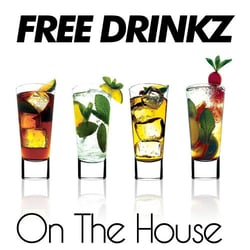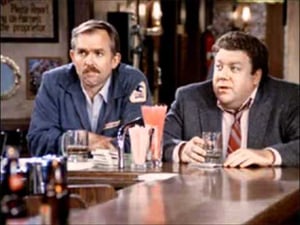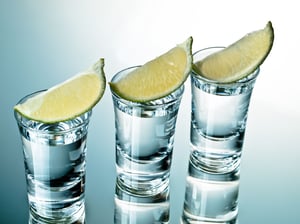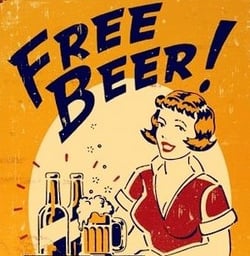 If you own a bar, you most likely recognize the reality that a certain amount of drinks will be given away for free. It’s an inevitable outcome, especially since comping drinks is a powerful way for bartenders to increase their tips. As a result, they have a strong incentive to make a certain percentage of the drinks they serve “on the house.”
If you own a bar, you most likely recognize the reality that a certain amount of drinks will be given away for free. It’s an inevitable outcome, especially since comping drinks is a powerful way for bartenders to increase their tips. As a result, they have a strong incentive to make a certain percentage of the drinks they serve “on the house.”
But it’s important for you to understand that bartenders and customers don’t have to be the only ones to benefit from these free drinks. If you devise a thoughtful and reasonable comping policy, you can also use these free drinks to grow your business. By managing the number of drinks given away as well as the manner in which they are comped, you can gain substantially more revenue in return business than you lose in alcohol that is given away.
Why should You Embrace Comping Drinks at Your Bar?
There are several powerful reasons why comping a certain portion of the drinks you serve is beneficial to your business:
- Everyone likes something for nothing – People enjoy feeling special, and getting something for free makes people feel special and valued. Simply put, this is good customer service.
 The “Cheers Phenomenon” – There is an important social element at play when comping drinks. Just as the iconic theme song from Cheers reminds us, people like to go to a place “where everyone knows your name.” People enjoy feeling like they are a regular at a bar, and there is a strong sense of community that is created amongst your regulars. Getting drinks comped on occasion helps make people feel like a regular, and this is a powerful force in making your establishment become their local bar.
The “Cheers Phenomenon” – There is an important social element at play when comping drinks. Just as the iconic theme song from Cheers reminds us, people like to go to a place “where everyone knows your name.” People enjoy feeling like they are a regular at a bar, and there is a strong sense of community that is created amongst your regulars. Getting drinks comped on occasion helps make people feel like a regular, and this is a powerful force in making your establishment become their local bar.- 5 to 1 benefit – You’re giving away a drink that might cost you approximately $1, but the retail price of the drink is closer to $5. For a cost of $1 to your bottom line, you’re providing a $5 value to the customer. This allows you to create a good experience for your customers at a relatively low cost to your business. This is the essence of good customer service.
- Form of marketing – Other industries spend money all the time on marketing efforts that will help get customers in the door. This is essentially a different type of marketing that occurs once you have customers in your bar, and it can be used to help get them to return more often.
For these reasons, comping a certain number of drinks per shift can help cultivate return customers who have a better experience and over time may become regulars. This is an effective way to grow your business.
Creating a Comping Philosophy for Your Bar
If you’re on board with the idea that comping a certain number of drinks per shift is beneficial to your business, the next step is to decide on the specifics for your comping policy. There are several different ways you can approach your comp policy:
- Dollar value per night – In this situation, bartenders have a nightly comp tab based on a set dollar amount they’re allowed to give away. This philosophy is attractive because it’s easy to evaluate compliance, but it’s flawed because it’s very inflexible.
For example, if a new family or a new group of customers come into the bar one night that have just moved to town, you might want to comp a few extra drinks to make them feel special and encourage them to come back to your bar. But if your nightly comp tab doesn’t allow your bartenders to buy these extra drinks for the group, they won’t have the flexibility necessary to read the situation and make decisions on comps based on what is ideal for the business in that particular moment. - Percentage of sales – In this scenario, bartenders are allowed to comp a set percentage of sales every night. The problem with this philosophy is that it doesn’t match need.
On a quiet night, there’s more of a need as well as an ability to create an excellent customer experience, whereas a busy Friday night where customers are 3 deep at the bar all night is not an ideal time to give away a lot of drinks. If your comping policy is created using a nightly percentage of sales philosophy, you’ll have the largest comp tabs during the busiest and least ideal shifts to do so. - Overall percentage of sales per week with trackability – With this philosophy, bartenders don’t have hard nightly limits for their comp tab. Instead, comps are measured as a percentage of sales throughout a larger time period (ideally this time period will match your inventory cycle). This is the most effective comping philosophy since your bartenders will have more discretion to decide which moments warrant comps and which moments don’t.
Trackability is crucial when using this model. You’re giving your bartenders a fair amount of responsibility by allowing them to use their discretion regarding comps. Therefore, you need to monitor how much is being comped during each time period and adjust accordingly based on how well the bartenders adhere to the guidelines you set.
To achieve this trackability, it’s critical that you set up your POS system in a way that identifies how many comps were given by each bartender. This way you can not only track whether the total number of comps meets the guidelines, but also whether any particular bartender is comping significantly more or less than they should based on these guidelines.
To make your comping policy even more effective, you should tie comp tabs to accountability. If you’re using a sophisticated inventory system, you’ll know what percentage of drinks is missing (your shrinkage). You can then create incentives for your bartenders to improve accountability and reduce shrinkage.
Bar-i has experienced a lot of success tying comping policies to accountability. To do this, you should create a policy where bartenders will have their comp tab as long as accountability meets a certain threshold. We recommend setting this threshold at 95% -- in other words, shrinkage is 5% or less. However, when accountability fails to meet this established threshold, the comp tab is removed.
This policy is most easily implemented when the time period used for measuring comps as a percentage of sales matches the inventory cycle. By making these time periods identical, it will be much easier to track both accountability and how effectively bartenders are meeting comping guidelines.
Bar-i recommends this approach because it provides motivation for bartenders to maintain higher levels of accountability. It’s the most complicated way to approach your comping policy, but you’ll achieve the most effective results.
Determining the Specifics of Your Comping Policy
Once you decide on a comping philosophy that works for your bar, you must establish detailed guidelines regarding how your bartenders should use their allotted comps. Consider the following factors:
 Comp shots, not drinks – You want customers to have more fun at your bar and experience better value during their visit. If a customer orders 2 beers and you comp 1 of them, you just robbed yourself of $5 in sales. However, if you instead charge that customer for both beers but also offer him a free shot, you’re still getting your $10 in revenue while only spending $1 on their free shot.
Comp shots, not drinks – You want customers to have more fun at your bar and experience better value during their visit. If a customer orders 2 beers and you comp 1 of them, you just robbed yourself of $5 in sales. However, if you instead charge that customer for both beers but also offer him a free shot, you’re still getting your $10 in revenue while only spending $1 on their free shot.
This is a drink they probably wouldn’t have ordered, but receiving it for free makes them feel special. At Bar-i, we consider this an ideal way to approach comps because you’re only giving away additional drinks that the customer most likely wouldn’t have ordered.- How many comps per customer? – Ideally, you want to spread out the comped drinks among all of your customers instead of having your bartenders use all of their allotted comps on their friends. After all, giving away free drinks to the friends of your staff won’t create any value to your business.
Keep in mind that allowing bartenders to give away a certain number of drinks to their friends creates value for the bartender since it is an effective way for them to boost their tips. Therefore, you don’t want to ban this practice entirely; you just want to keep it in check so that a substantial portion of the allotted comps go to your regulars who will return often and spend more money at your bar.
The best way to ensure that comps are used in the proper manner is to create a policy that only allows a certain number of drinks to be comped per tab. This will allow your bartenders to take care of their friends within reason while ensuring your other customers receive these benefits as well. - Beware of tax implications – Technically, you will still have to pay sales tax on comped drinks. When you charge a customer $5 for a drink, the sales tax is built into the price. When you comp a drink, most states still require that you pay the sales tax. Keep in mind that all states have different rules governing sales tax, so we recommend that you consult a qualified tax professional in your area to ensure you adhere to all legal state sales tax requirements on comped drinks.
We’ve seen some of our Bar-i clients avoid paying sales tax by classifying comp drinks as a marketing expense. However, this requires some detailed accounting. You’ll need to enter all of your comps in your books as marketing expenses instead of as comped drinks.
Even if you must pay sales tax on these drinks, you can factor the tax expense into your comping policy when setting the percentage of sales you allow bartenders to comp.
Giving Away Drinks Is Unavoidable, but You should Control the Practice
 It’s important to remember that bartenders make the bulk of their money from tips, not from their hourly wage. If they give away drinks, they tend to get tipped more, which provides them with a powerful incentive to do so. Therefore, it is unrealistic to expect that drinks won’t be given away at your bar. Instead, you should be proactive and control the manner in which these drinks are given away.
It’s important to remember that bartenders make the bulk of their money from tips, not from their hourly wage. If they give away drinks, they tend to get tipped more, which provides them with a powerful incentive to do so. Therefore, it is unrealistic to expect that drinks won’t be given away at your bar. Instead, you should be proactive and control the manner in which these drinks are given away.
Based on performing inventory audits for hundreds of bars, Bar-i has found that 20% shrinkage is typically industry standard. This level of shrinkage isn’t entirely from drinks being given away; it occurs from overpouring as well. However, if you don’t measure what’s being sold vs. what was poured, your bartenders will just give drinks away in larger numbers than will benefit your bar. To avoid this problem, you need to have a sensible policy that ensures the drinks being given away benefit your bar as well as your bartenders’ wallets.
Comping is a valuable tool to grow your business when used appropriately. As with most aspects of running your bar, the best solution isn’t the simplest solution. It requires a detailed inventory system so that comp tabs can be tied to accountability, and it requires setting up your POS system so that you can break down comps given by each bartender.
This way, if your bartenders are giving away too many drinks or pouring too heavy, they will lose the ability to comp drinks during the next inventory period. This is a powerful tool to motivate your bartenders to do a better job with their accountability while simultaneously using this tactic to offer more value to customers.
If you would like to learn additional tips to refine your comping policy or find out how Bar-i can help you maximize your profits, please contact us today to schedule a free consultation. We serve clients nationwide from our offices in Denver, Colorado.


-1.png)